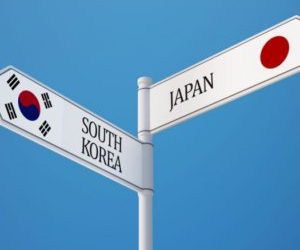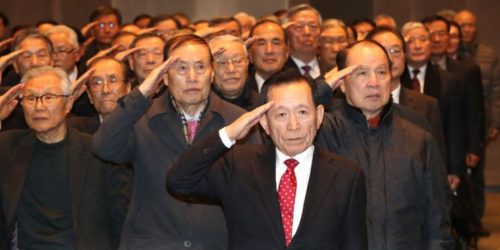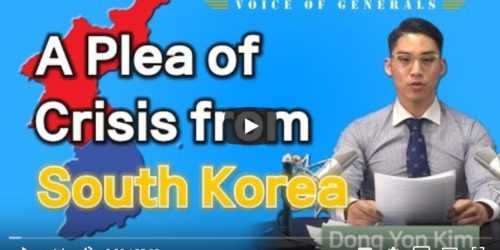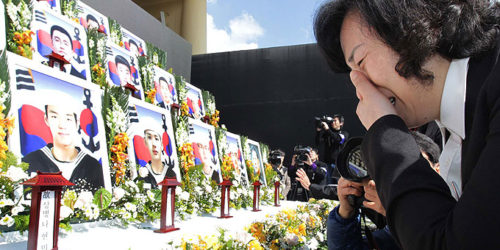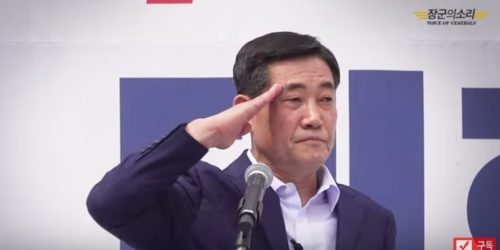We Urge the Government to Withdraw its Decision to Terminate GSOMIA and Extend the Pact Immediately, Statement of the KORGAD
2019-11-13, KORGAD Statement
The Moon administration has maintained its stance on the General Security of Military Information Agreement (GSOMIA), contending that the pact should be terminated since Japan tightened controls of South Korea-bound exports for security reasons. Once the GSOMIA pact is scrapped, it will make it difficult for Seoul to defend itself against Pyongyang’s nuclear weapons and missiles, and South Korea could potentially be excluded from Washington’s security strategy. Therefore, we, at the Korean Retired Generals & Admirals Defending the Nation (KORGAD), urge the Moon administration, bringing calamity upon itself with policies based on anti-Japan sentiment, to immediately withdraw its decision to abrogate the GSOMIA pact and solidify the Republic of Korea (ROK)-U.S. alliance.
1. Extend GSOMIA before November 22 and Terminate the September 19, 2018 Inter-Korean Military Agreement.
If GSOMIA, the military information protection agreement between Seoul and Tokyo, comes to an end on November 23, 2019, South Korea will no longer be able to obtain necessary information on North Korea from Japan. Since the September 19 Inter-Korean Military Agreement has already compromised the South Korean military’s surveillance and reconnaissance capabilities, if Seoul stops information exchanges with Tokyo, it will severely hinder South Korea’s ability to determine North Korea’s military status. Now is high time to scrap the September 19 Inter-Korean Military Agreement, not GSOMIA.
GSOMIA is a bridge for security cooperation between Seoul and Tokyo and a cornerstone of their three-way cooperation with Washington. Indeed, the GSOMIA pact is a combined defensive measure and an axis of military information sharing that allows both parties to share critical information on nuclear weapons and missiles of Pyongyang, Beijing and Moscow and warn the infiltration of airspace by Beijing and Moscow and block such attempts. GSOMIA must be maintained, since it will continue to contribute to the security of the Korean Peninsula even after the reunification, and it will create massive military gains with no additional cost.
2. Extend GSOMIA Immediately to Protect the Citizens’ Lives and Wealth.
The value of GSOMIA has become general security knowledge that all South Koreans are well aware of. Those determined to abolish the GSOMIA pact are either spies working for the enemy or malicious entities benefiting the enemy through jeopardizing the security of South Koreans. The National Liberation (NL) administration, destroying national interests and security blinded by ignorance and self- righteousness, should repent of its wrongdoings and redirect its national security policies towards its citizens, instead of Pyongyang. Jeong Kyeong-doo, Minister of National Defense, should propose the extension of GSOMIA to protect the citizens’ lives and wealth, and in case he fails to extend the pact, he will have to resign.
3. Abrogation of GSOMIA Jeopardizes South Korea’s Military Interests and Benefits the Enemy’s Military.
The country that is most eager to see GSOMIA being abrogated is North Korea. If the Moon administration pushes ahead with its scheme to scrap the pact regardless of the dissuasion of its allies including Washington and South Koreans, its decision will benefit the enemy, which ultimately is a crime of benefiting enemies. In addition, if the abrogation of GSOMIA undermines the ROK-U.S. alliance and contributes to the increase of Seoul’s share of defense costs, a criminal charge of causing loss to the exchequer will be added as well. South Korean citizens will not tolerate the Moon administration’s termination of GSOMIA. Once the pact is scrapped, the KORGAD will charge the Moon administration with a crime of benefiting the enemy and expedite its impeachment campaign. // (end)
